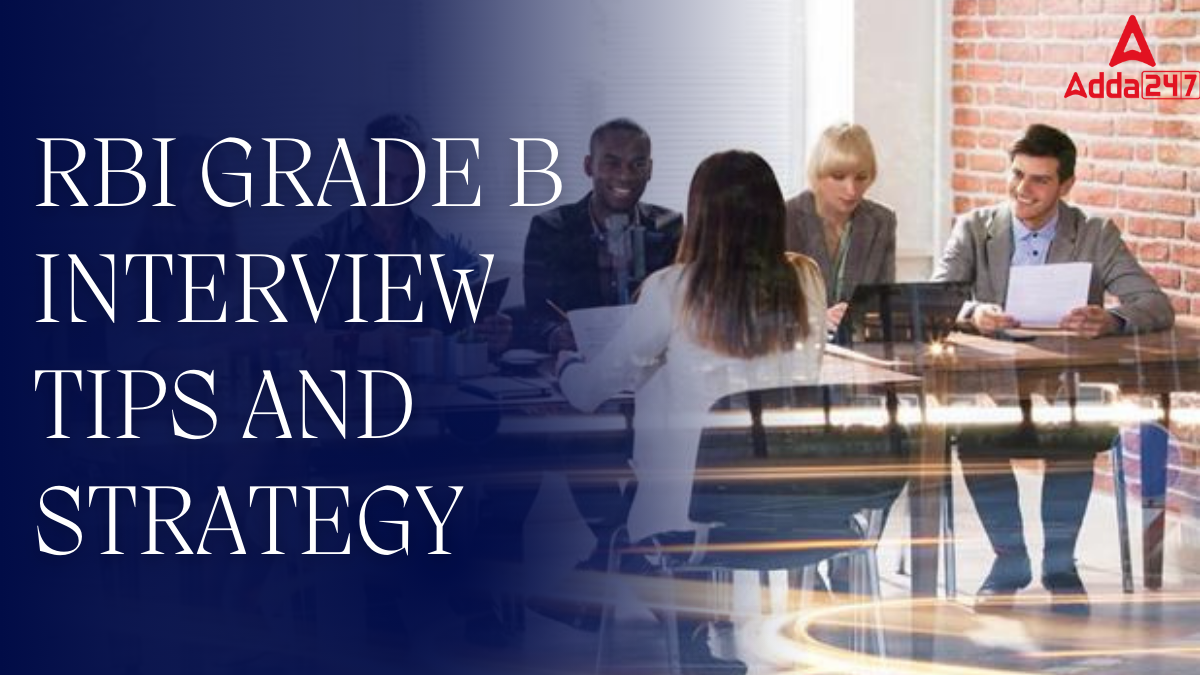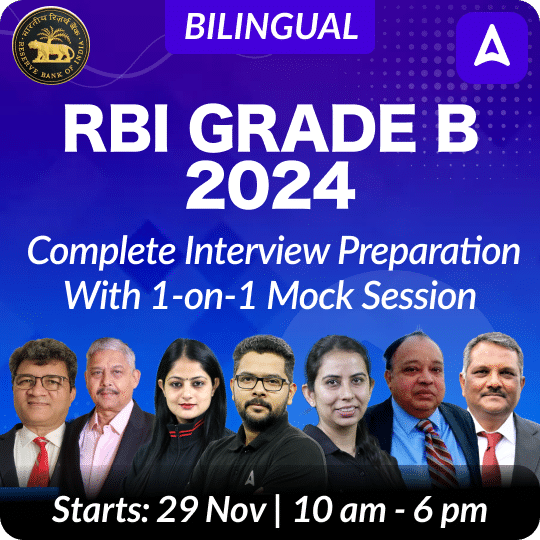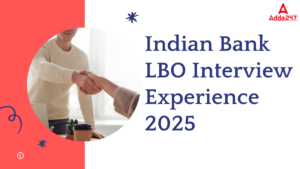Table of Contents
The RBI Grade B Interview is the final stage in the selection process and a decisive step toward becoming an officer in one of India’s most prestigious institutions. This round assesses a candidate’s personality, communication skills, domain knowledge and awareness of current affairs. Success in the interview requires a strategic approach that highlights your competence, confidence and alignment with the Reserve Bank of India’s values.
RBI Grade B Interview Tips and Strategy
The RBI Grade B Interview is the candidates’s chance to make a lasting impression and secure one of the most sought-after positions in the banking sector. With thorough preparation, a strong understanding of RBI’s role and effective communication skills, candidates can confidently showcase their suitability for the position. Here are detailed tips and strategies to help you excel in the RBI Grade B Interview:
1. Understand the Role and RBI’s Functioning
Before walking into the interview, have a clear understanding of the responsibilities of an RBI Grade B officer. Learn about the key functions of the Reserve Bank of India, such as monetary policy formulation, financial supervision, issuance of currency and managing inflation. Familiarize yourself with the latest RBI notifications, reports and initiatives like the Annual Report, Monetary Policy Report and Financial Stability Report. A strong grasp of RBI’s role in the economy will demonstrate your preparedness and seriousness.
2. Be Thorough with Your Bio-data
Your interview panel will have a copy of your bio-data, so expect questions based on the information you provided. Be prepared to explain your academic background, work experience, hobbies and any other details you’ve mentioned. For instance, if you’ve listed “reading” as a hobby, be ready to discuss your recent reads or favourite authors. If you have work experience in the banking or financial sector, highlight your achievements and their relevance to RBI’s operations.
3. Stay Updated on Current Affairs
The panel will likely ask about recent economic developments, both domestic and global and their implications for India. Read newspapers like The Hindu or The Economic Times and follow credible online sources for updates. Focus on topics such as inflation trends, interest rate changes, fiscal policy, GDP growth and global economic challenges. Understanding these topics will help you answer questions confidently and impress the panel with your awareness.
4. Develop Domain Knowledge
Your understanding of core concepts in economics, finance and banking will be tested. Revise topics such as monetary policy tools, banking regulations, inflation control mechanisms and financial market operations. For candidates with a specialized background in engineering or arts, expect questions about how your skills and knowledge can contribute to RBI’s objectives. The key is to connect your expertise to the requirements of the job.
5. Practice Communication Skills
Clear and confident communication is crucial in the RBI Grade B Interview. Practice answering questions in a concise and structured manner. Avoid using jargon unnecessarily and if a technical term is required, be ready to explain it in simple language. Mock interviews can help improve your speaking skills and reduce nervousness. Record yourself or seek feedback from mentors to refine your responses.
6. Prepare for Commonly Asked Questions
Here are some frequently asked questions to practice:
- Why do you want to join RBI?
- What are the challenges faced by the Indian banking sector?
- Can you explain the significance of monetary policy in economic growth?
- How would you manage a situation requiring quick decision-making in your role?
Prepare answers that showcase your knowledge and align with RBI’s mission.
7. Work on Your Personality and Confidence
The panel evaluates not just your knowledge but also your demeanour, confidence and ability to handle pressure. Dress formally and ensure a neat and professional appearance. Greet the panel with a smile and maintain a calm and composed body language throughout the interview. Even if you don’t know the answer to a question, handle it gracefully by admitting it honestly and expressing a willingness to learn.
8. Mock Interviews and Feedback
Participate in mock interviews conducted by coaching institutes or mentors who understand the RBI Grade B interview process. These sessions simulate the actual interview environment and help identify areas of improvement. Pay attention to feedback regarding your tone, posture and content delivery and work on enhancing these aspects.
9. Prepare Questions for the Panel
The interview often ends with the panel asking if you have any questions for them. Use this opportunity to show your curiosity and enthusiasm for the role. You might ask about RBI’s initiatives for financial inclusion or how RBI plans to address emerging challenges like cryptocurrency regulation. Avoid asking questions that could have been answered through basic research.
10. Revise the Previous Phases’ Topics
The panel might ask questions from your Phase 1 and Phase 2 exams. Be ready to discuss topics like inflation targeting, fiscal deficit, international trade and the functioning of financial markets. Revisiting these subjects ensures you’re prepared for any technical questions.




 GIC Assistant Manager Interview Tips 202...
GIC Assistant Manager Interview Tips 202...
 Interview Preparation Guide for Central ...
Interview Preparation Guide for Central ...
 Indian Bank LBO Interview Experience 202...
Indian Bank LBO Interview Experience 202...





